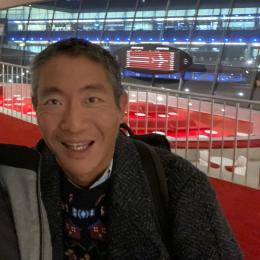Dr Kenneth Y T Lim
Kenneth Y T Lim operates at the intersection of cultural anthropology, the learning sciences, and cognitive psychology. Most recently, he has been invited to speak by Seoul National University during the 21st International Conference on Educational Research, on the topic of Artificial Intelligence (AI), Data Science and the Digital Humanities.
Kenneth sits on the Editorial Board of 'Computers and Education Open', which is the Gold Open Access companion journal to the Elsevier publication 'Computers and Education'.
He is one of about a dozen people worldwide to have been invited by UNESCO as a member of the organization's inaugural Symposium on the Future of Education for Sustainable Development (Asian case study), 2016 - 2017. In recognition of his expertise in the mediation between maker culture and learning, Kenneth was invited by UNESCO as a Plenary Speaker at the 2016 conference of the Asia-Pacific Programme for Educational Innovation and Development.
He and his team developed a response to COVID-19, titled the Socially Responsible Behaviour through Embodied Thinking (SORBET) Project. SORBET was featured in the Project Showcase of the conference of the Immersive Learning Research Network in June 2020.
Kenneth was Lead Editor of a Special Issue of the British Journal of Educational Technology themed on Augmented Reality (AR), published in 2020. His work in AR complements a field-based inquiry curriculum his team had earlier designed using open-source hardware and software, which they call Maker Motes. In 2016 he and his team embarked on translating the Maker Motes approach to urban and peri-urban schools in the ASEAN region. Kenneth edited a book titled ‘Landscapes of participatory making, modding and hacking: maker culture and makerspaces’ which was published in 2017, alongside a second title in 2018, namely 'a guide to developing digital games for early grade literacy for developing countries' (the latter commissioned by Digital Learning for Development and All Children Reading).
Kenneth conceptualised the Six Learnings framework of curriculum design for virtual worlds and immersive environments. The framework has been scaled and translated to a variety of learning contexts, spanning from Upper Primary to Undergraduate levels. His work on a theory of learning around the notion of Disciplinary Intuitions is elaborated on in a book published in 2015 by Springer; the book is indexed by Scopus.
Kenneth has extensive experience in curriculum design, teaching and training in various contexts, and designing research interventions around the investigation of new media literacies.
In recognition of the quality of his research and the scalability of his practice, his work was chosen as one of only five Research With Impact case studies for the National Institute of Education's Office of Education Research / Office of Strategic Planning and Academic Quality 'Research Excellence Report' in 2017.
Selected publications
Lim, K. Y. T., Hilmy, A. H., Yuen, M.-D., Lim, L. J. T., & Ng, J. J. L. (2021). Nurturing positive social values with the Socially Responsible Behaviour through Embodied Thinking (SORBET) Project. Computers and Education Open.
Lim, K. Y. T., & Lim, R. (2020). Semiotics, memory and Augmented Reality: History education with Learner Generated Augmentation. British Journal of Educational Technology, 51(3), 673-691.
Lim, K. Y. T., K. H.-C. Chen, S.-W. Lin, J.-C. Huang, K. S.-E. Ng, J. J. L. Ng, Y. Wang, & N. Woong (2018). Representations of novice conceptions with Learner-Generated Augmentation: a framework for curriculum design with Augmented Reality. Journal of Virtual Worlds Research, 11(3).
Lim, K. Y. T. (2009). The Six Learnings of Second Life: A Framework for Designing Curricular Interventions In-World. Journal of Virtual Worlds Research, 2(1), 3-11.
Lim, K. Y. T., Chua, D., Yuen, M. D., & Hilmy, A. H. (2019). Surfacing learner intuitions about electrical circuit design using an open-source virtual environment chart-a-path. International Journal of Electrical Engineering & Education.



